targetedads
Latest
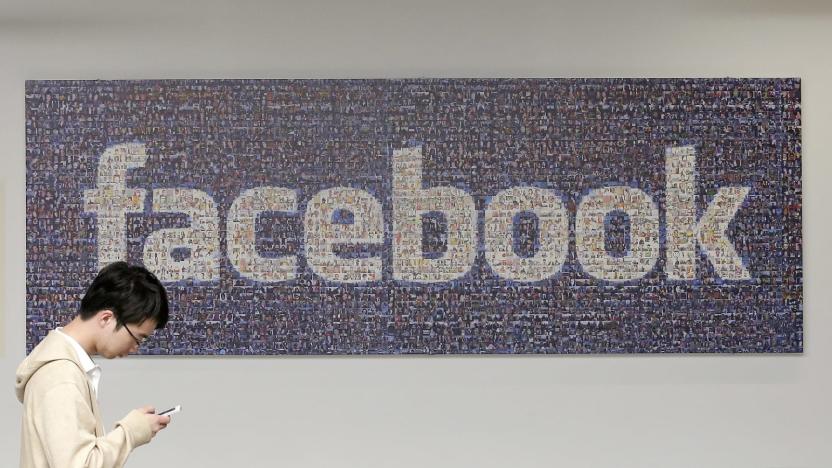
Facebook will be liable for future Cambridge Analytica-style scandals
Facebook is updating its terms and conditions after agreeing several changes with the EU. It will have to clearly explain to users they can access the social network for free because it uses targeted ads that rely on user data. Facebook will also have to disclose what revenues it generates through the use of such data.

Senate bill proposes stricter privacy controls for children
Some politicians don't believe the Children's Online Privacy Protection Act does enough to protect kids in the modern era, and they're hoping to update it accordingly. Senators Ed Markey and Josh Hawley have introduced a bill that would amend COPPA with stricter controls on kids' data. It would ban ads targeted at kids, and would require an "Eraser Button" that would let kids and parents wipe data. The measure would still ban the collection of personal data for kids under 13 without their parents' consent, but it would also ban collecting data from the 13- to 15-year-old crowd without the user's permission.
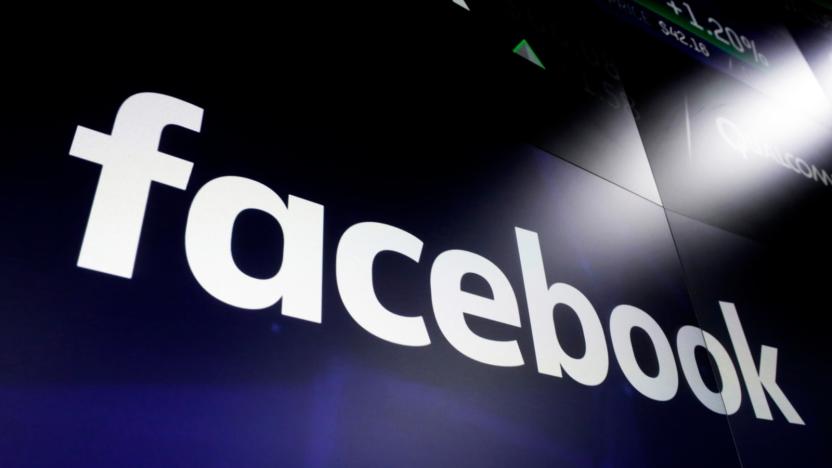
Facebook will show who uploaded your contact info for targeted ads
Facebook has taken some steps to prevent companies from recklessly using your data for targeted ads, but now it might put pressure on them to come clean. As of February 28th, Facebook's "why am I seeing this ad?" button will show who (if anyone) uploaded the contact info that led to a sales pitch. You'll know if it comes straight from the source, like a retailer, or if the company relied on an outside partner to gather the data.
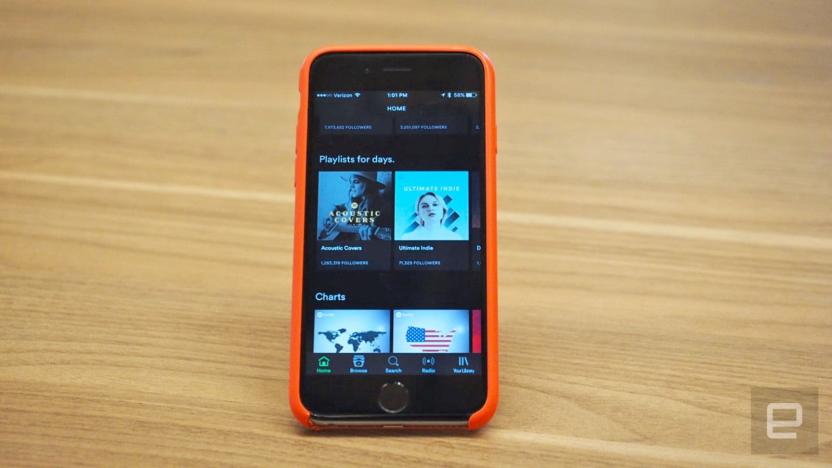
Spotify may let free users skip as many ads as they want
Since last month, Australian Spotify users have been using the Active Media feature, which lets them skip as many ads as they wish, whenever they like, even without a paid subscription or illicit apps that offer pirated versions of Premium. But everyone else on the free tier may not be left out of the unlimited ad-skipping party -- Spotify aims to offer the feature to users everywhere eventually.
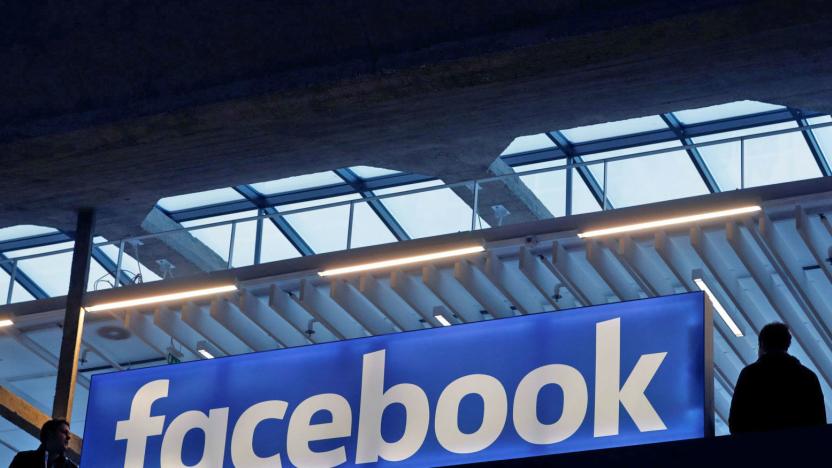
Facebook job ads are being used to filter out older applicants
Facebook's targeted ad tools have landed it in hot water again. Dozens of companies are placing recruitment ads restricted to select age groups on the social network, according to a joint investigation by ProPublica and The New York Times. They include Verizon, Amazon, Goldman Sachs, Target and Facebook itself, among others. Legal experts are questioning whether the practices are lawful, specifically whether they abide with the federal Age Discrimination in Employment Act of 1967, which forbids bias against people 40 or older in hiring.
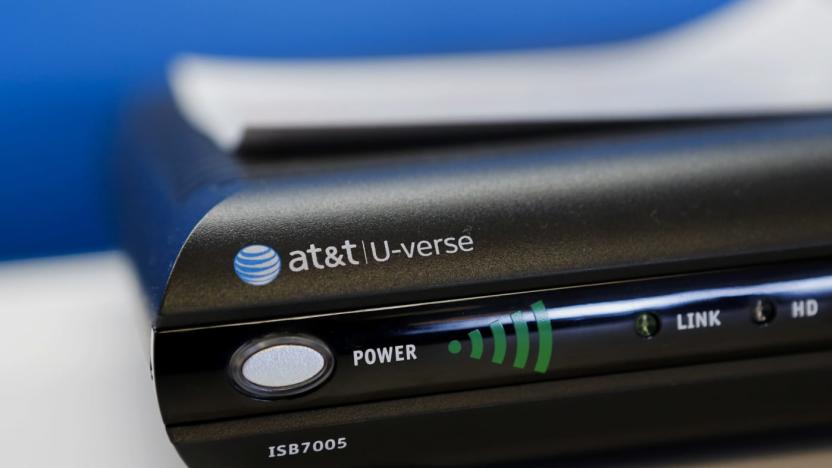
AT&T is bringing internet-style targeted advertising to TV
Targeted ads are coming to your TV by of AT&T. The telco is partnering with video advertising company Videology to sell ads based specifically on what the two think you're looking for, according to The Wall Street Journal. The tech is based on, among other things, the channels you watch and demographic info.

Spotify ads cater to the mood of your music
Targeted advertising isn't a new concept, and Spotify is looking to examine your playlist habits before serving up those messages. The streaming service offers a library of curated mixes based on genre and mood, and eager advertisers can now leverage a listener's state of mind to sell their products. Playlist Targeting is the official name of the feature, with collections of tracks for Chill, Party, Workout, Romance, Sleep and more providing the opportunity for brands to woo would-be customers. Spotify says 41 of its top 100 playlists are context related (like the mood options), and users spend an average of nearly 2.5 hours listening a day. That's a lot of time for Trojan ads during the Bedroom Jams playlist.

Verizon Selects brings targeted ads to VZ wireless customers, induces more holiday shopping
We've grown accustomed to the creepily context-aware ads in our Gmail inboxes and we've seen targeted ads come to game consoles and printers, so naturally, it's no surprise Verizon's bringing such advertising to its mobile customers. Called Verizon Selects, it's a program rolling out to some Big Red patrons, who, should they choose to opt in, will receive tailored offers and marketing messages on their phones. It works by using myriad user info, including location, web browsing and mobile app usage data "to create specific insights" -- i.e. VZW figures out where you go and what you like in order to shoot you appropriate ads. In order to get folks with the program, Verizon will offer those who opt in a coupon or "some other form of reward," and the company is assuaging privacy fears by allowing users to control their privacy choices on the Verizon Selects website. What say you, dear readers -- will you be opting into Big Red's new mobile marketing scheme? Sound off in the comments below.

Microsoft patent application could match online moods with emotionally-targeted ads
It's a match made in marketing heaven: users let their guards down within the internet's virtual walls and ads are served up to complement their fickle mental states. At least, that's one possible version of your hyper-targeted digital future, if a patent application, filed by Microsoft back in December of 2010, is any indication. The USPTO documents outline a system wherein users' online activity would be monitored and associated with a corresponding tone, their reactions recorded and an overall emotional state affixed to that behavior. This information, once properly indexed, would then be fed into a large database containing user-identifiable emotional profiles used to deliver mood-specific ads. Clearly, this proposed endeavor all but screams privacy concerns and begs the inclusion of a giant, blinking opt-out clause. Color us paranoid, but we'd rather not see the day when our PCs know we're having a particularly gloomy Sunday.

Google promises 'greater transparency' for targeted ads, gives users more control over them
Chances are you've visited at least one Google site or another today, and chances are you were delivered some ads tailored just for you while you were there. Exactly how those ads got from the advertiser to you hasn't always been clear, but Google's now announced a new effort that it promises will provide "greater transparency and choice" regarding the ads you see. The most immediate change is a new "Why this ad?" link that will be displayed in search results and on Gmail -- click on it and Google provides a brief explanation of how that particular ad came to appear on your screen (based on your current search terms, your location, etc.). You'll also soon be able to access a new Ads Preference Manager, which will let you block specific advertisers or opt out of personalized ads entirely. Google says those options will be appearing "over the coming weeks," but you can get a peek at what's in store in the video after the break.

Microsoft exec caught in privacy snafu, says Kinect might tailor ads to you
Microsoft's Dennis Durkin voiced an interesting idea at an investment summit last week -- the idea that the company's Kinect camera might pass data to advertisers about the way you look, play and speak. "We can cater what content gets presented to you based on who you are," he told investors, suggesting that the Kinect offered business opportunities that weren't possible "in a controller-based world." And over time that will help us be more targeted about what content choices we present, what advertising we present, how we get better feedback. And data about how many people are in a room when an advertisement is shown, how many people are in a room when a game is being played, how are those people engaged with the game? How are they engaged with a sporting event? Are they standing up? Are they excited? Are they wearing Seahawks jerseys?Needless to say, sharing this level of photographic detail with advertisers presents some major privacy concerns -- though it's nothing we haven't heard before -- but moreover it's explicitly against the privacy policy Microsoft presents Kinect users. "Third party partners use aggregated data to deliver Kinect experiences (games or applications), to understand how customers use their Kinect experiences, and to improve performance or even to help plan new experiences," the Kinect Privacy and Online Safety FAQ reads, but also "They are not permitted to use the information for marketing purposes such as selling you games or services, or for personalizing advertising" (bolding ours). In an email to the Wall Street Journal, Microsoft flatly denied that the Kinect would do anything of the sort, whether via third-party partners or otherwise. "Xbox 360 and Xbox LIVE do not use any information captured by Kinect for advertising targeting purposes," representatives wrote. Honestly, some of us at Engadget still think targeted advertising is kind of neat, but we know how seriously you take this stuff.

HP and Yahoo team up to deliver targeted ads... to printers
Seriously. To be specific, the two companies are working on delivering targeted ads to HP's web-connected printers, and the ads would apparently only show up when you use HP's "scheduled delivery" service to have portions of a newspaper or magazine printed every morning. To make those ads as targeted as possible, HP says the printers would employ IP sniffing to help pin down your location, and the company says that the ads could also be targeted based on "user's behavior as well as the content" -- although it's quick to point out that everything must be done with privacy in mind. Will folks mind having ads encroach on their own printed materials (not to mention printer ink)? Not according to HP's Stephen Nigro, who says that HP has discovered "that people were not bothered by it," and that part of its belief is that "you're used to it. You're used to seeing things with ads."

Canoe's targeted ads set sail for households with income to spend
The six cable companies involved with Canoe Ventures -- Comcast, Time Warner, Cox, Charter, Cablevision and Bright House -- will be turning loose the targeted ad technology that has been in the works for a while now. Especially in the midst of the economic crunch, you just know that tax brackets are going to drive the tailoring of the bespoke ads, which go by the friendly name of CAM (community addressable messaging). Fully interactive ads will have to wait for tru2way, so for now CAM 1.0 will swap in one of two versions of a spot, depending on whether the destination is in a zone designated as "over $100,000." We foresee some interesting water cooler discussions ahead as coworkers report seeing different ads at halftime and thus give away some personal info.

Comcast Spotlight to pinpoint customer desires with targeted ads
Comcast is rolling out its Spotlight program in Baltimore in Q3 of this year. There's a scary threesome involved in the effort: Comcast, media agency Starcom MediaVest Group and technology partner Invidi. Central to the program is Invidi's Advatar technology (no, not that Advatar) to deliver ads targeted to individual users. Before you get too scared by the "Big Brother" sound of all this, consider that Comcast's initial trial of addressable placements showed 38% less ad-skipping; that's a pretty good indication that people preferred the ad flavor cooked up by Comcast. Let's face it -- in conventional broadcasting (and increasingly online as well), advertising is a proven model. So programming is going to be sprinkled with ads; wouldn't you rather have them be personally interesting? We certainly prefer this to the "run the ads louder" approach. The real tricky issue will be maintenance of anonymity; we'll see how consumers respond as TV increasingly watches them. All companies involved would be wise to keep in mind the cost of winning back violated customer trust.

Microsoft envisions invasive approach to targeted advertising
Not that getting all up in our proverbial grills in order to provide specialized advertising is a new concept or anything, but Microsoft in particular has been on the warpath of late in this very realm. On the heels of a similar ad-based patent application comes documentation that reveals plans to use "biometric sensors, cameras, remote controls, or other accessories" to detect and identify an individual before doling out targeted plugs. Yes, this certainly does insinuate that your television would be watching you just as often as you viewed it, but unless it becomes lawful to stuff monitoring devices into our homes for the benefit of marketers, we'll consider ourselves safe -- for the time being.[Via TechDirt]








